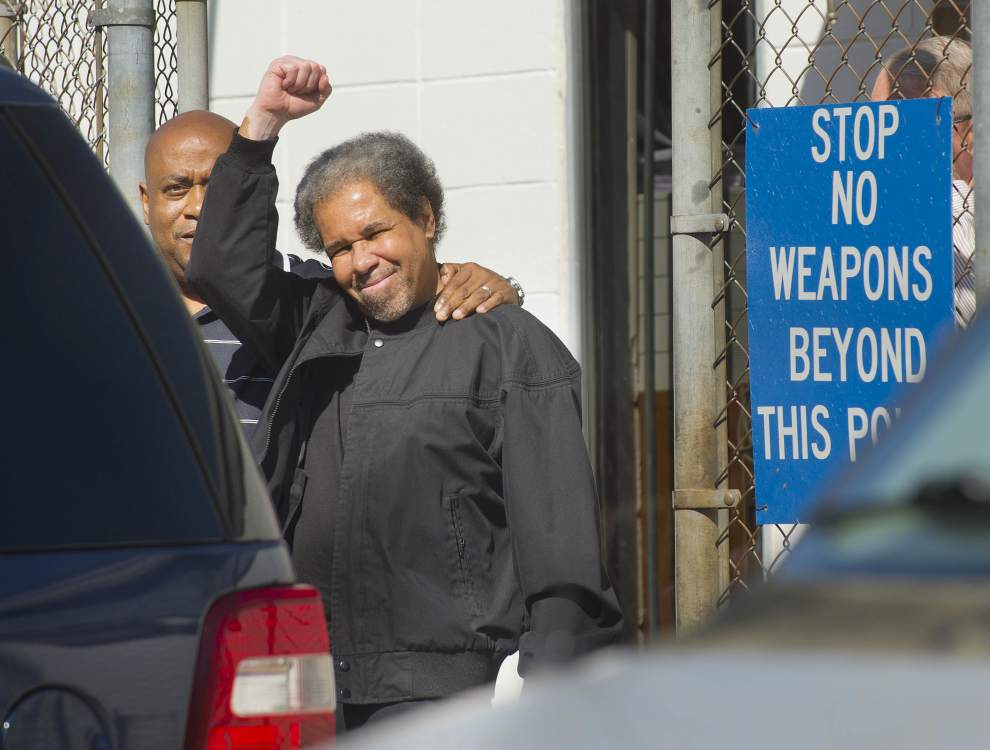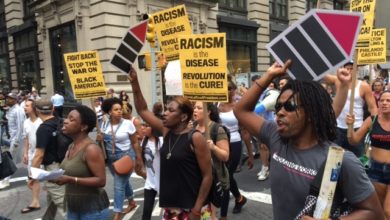On March 15, in Hammond, Louisiana, Liberation News attended one of the first appearances from a man who spent 44 years of his life in prison, much of that time in a 6’x9′ solitary confinement cell. This reporter first came to understand the plight of the Angola Three through an undergraduate course, where we learned not only about the injustices of our nation’s judicial system, but also about a man who has lived through those injustices in one of the most densely incarcerated populations the world has ever seen.
Woodfox’s case opened my eyes to the realities of a prison system that disproportionately targets individuals of color and lower-socioeconomic status; an instrument of power that has been built to lock up anyone seen as delinquent.
In his opening comments, Woodfox spoke to the audience about his life before imprisonment as a young African-American man who was born and raised in New Orleans. He recalled how early on, seeing his mother endure sacrifice after sacrifice had led him to feel malcontent toward her. Thus against his mother’s wishes he pursued the opportunities New Orleans had to offer, . Said Woodfox, “The noise of the street was louder than my mother’s voice.”
Life on the streets of New Orleans had proved to be troubling for him and he received his first criminal charge after being pressured to hide a murder weapon which inevitably landed him in Orleans Parish Prison. It was once he fled OPP for a safer existence in Harlem, New York that Albert Woodfox first bore witness to solidarity in the form of the Harlem chapter of the Black Panther Party.
In describing this moment, Woodfox fondly recalled how the Black Panthers’ presence had changed the neighborhood, “For the first time in my life, I remember seeing African Americans walking around the neighborhood, not afraid and protected… I also remember seeing some very pretty sisters,” he said playfully with a wide grin spreading across his face.
It was through his experiences in Harlem that Albert Woodfox came to understand the opportunities solidarity provided in fighting inequality and racism, especially when he found himself in Angola Prison, where prisoner conditions were at their all-time worst.
Once Albert Woodfox came to understand the plight of the African American in the Prison Industrial Complex, he and two other inmates by the names of Herman Wallace and Robert King succeeded in bringing the prison population together to fight for the humane treatment of prisoners, access to educational resources and rehabilitative treatments that would allow inmates to develop their own potential. Said Woodfox, “Every Thursday in the prison was Fresh Fish day, where new inmates were introduced to general population, and I recall seeing young men with their whole lives’ in front of them, but with no light in their eyes….their lives were over. So, we took it upon ourselves to educate them in understanding the entirety of their situation, to ensure that they were working towards self-improvement.”
Woodfox believes that the solidarity between the prisoners had led the three men to be framed for the killing of a prison guard, despite the fact that all three men were accounted for during the time of the murder, as well as discrepancies with the physical evidence that allegedly tied the men to the case.
Despite 44 years of living in a 6×9 cell and three over-ruled re-trials, the actions of the Angola Three have emboldened the solidarity amongst prison abolitionists and human rights activists the world over.
Woodfox said in closing, “I am now a free man. I can go home,right now, be with my family, and none of that would have been possible if it wasn’t for all the people who stood up beside me and did what was right.”







